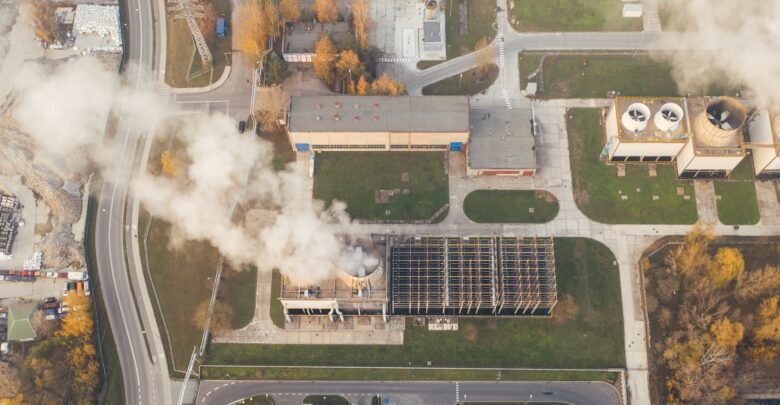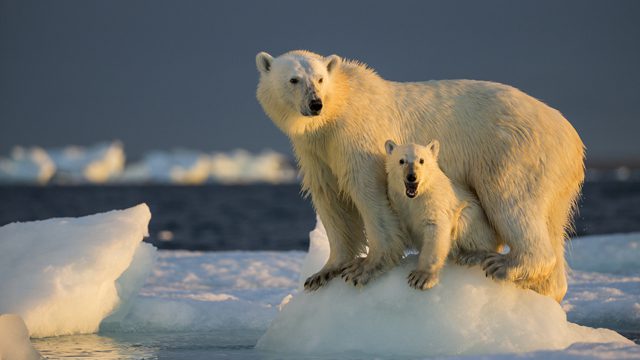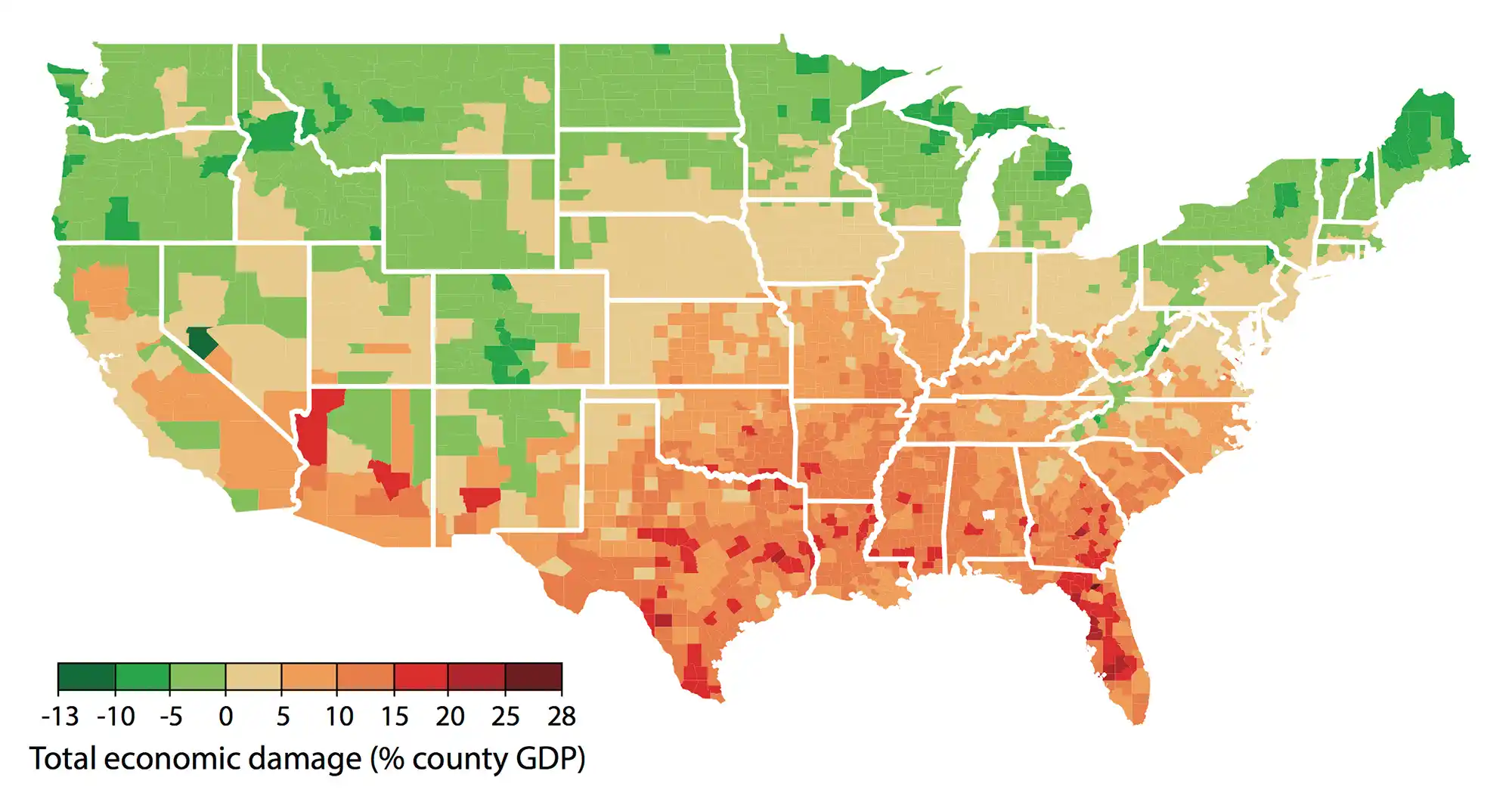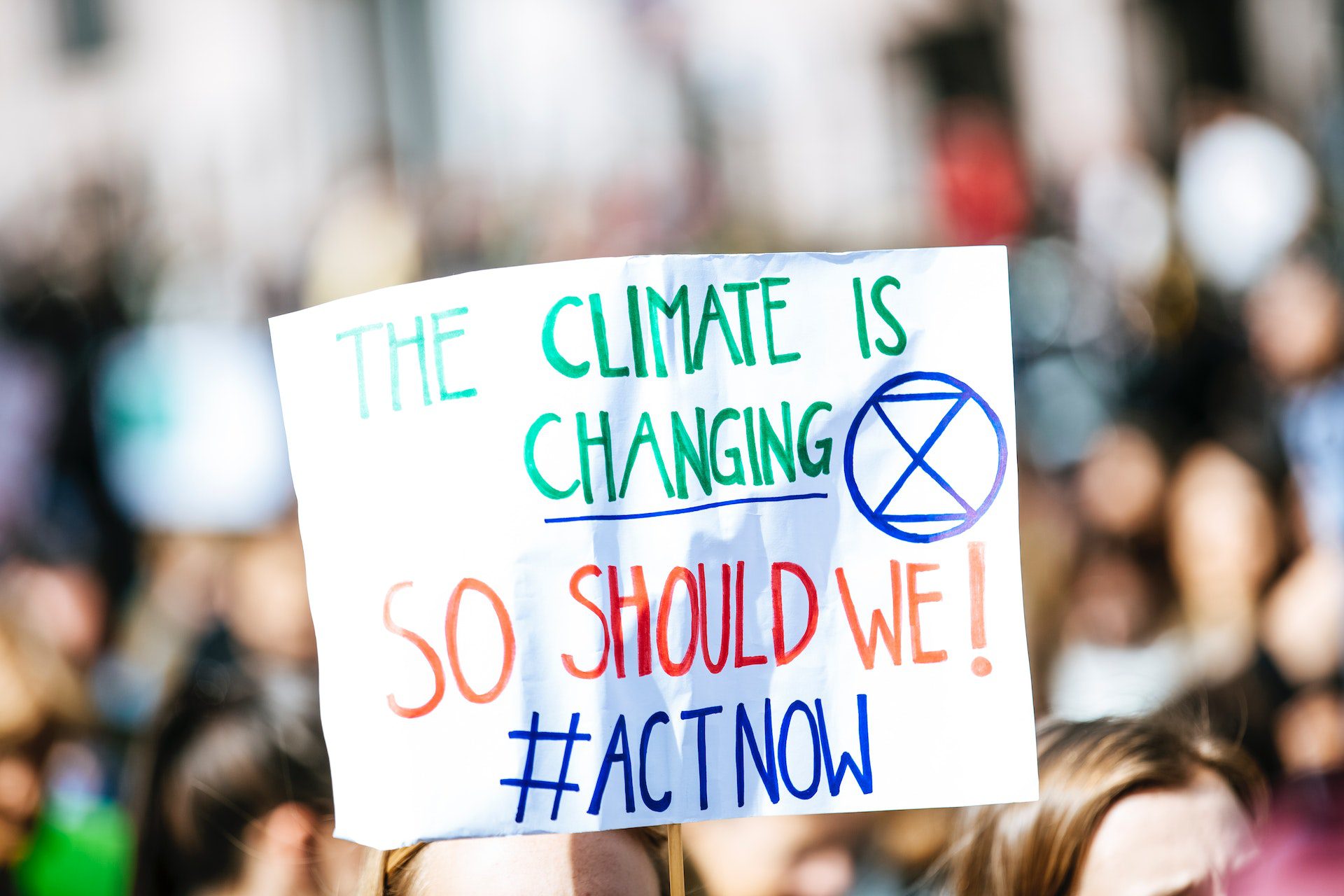
Climate change is a global issue that affects every living being on this planet. It is a phenomenon that refers to the long-term changes in the Earth’s climate, including temperature, precipitation, and weather patterns. Climate change has been a topic of discussion for several decades now, but the urgency to address it has never been more critical. The effects of climate change are becoming increasingly evident, from rising sea levels to more frequent natural disasters. In this blog, we will discuss the science behind climate change, its impact on the environment and economy, and why it is crucial to take action now.
The Science Behind Climate Change

Climate change is primarily caused by the accumulation of greenhouse gases (GHGs) in the atmosphere. These gases trap heat from the sun, resulting in a warming effect on the planet. The primary GHG responsible for this effect is carbon dioxide (CO2), which is released through human activities such as burning fossil fuels and deforestation. Other GHGs include methane, nitrous oxide, and fluorinated gases.
The concentration of CO2 in the atmosphere has risen dramatically over the past century, from approximately 280 parts per million (ppm) before the industrial revolution to over 400 ppm today. This increase in GHG concentration is causing a significant warming effect on the planet, leading to various environmental and societal impacts.
The Effects of Climate Change on the Environment
Climate change has several environmental impacts, including rising sea levels, melting glaciers, and more frequent natural disasters such as hurricanes, floods, and wildfires. These events are causing significant damage to ecosystems and biodiversity, with many species facing extinction due to habitat loss and altered climate patterns.
The warming of the oceans is also leading to the bleaching of coral reefs, which provide essential habitats for marine life. The acidification of the oceans due to increased CO2 levels is also affecting the growth and survival of shellfish and other marine organisms.
The Economic Impact of Climate Change
Climate change has significant economic impacts, with the potential to affect every sector of the economy. The costs of natural disasters are rising, with more frequent and severe weather events causing damage to homes, businesses, and infrastructure. The insurance industry is also feeling the effects, as the costs of claims rise due to climate-related losses.

The agricultural sector is also vulnerable to the effects of climate change, with altered weather patterns affecting crop yields and quality. Rising sea levels and increased flooding are also threatening coastal communities, with the potential to cause significant economic damage.
The Role of Human Activities in Climate Change
Human activities are the primary cause of climate change. The burning of fossil fuels, deforestation, and changes in land use are all contributing to the increase in GHG concentrations in the atmosphere. The rapid growth of the global population and increased consumption patterns are also driving up emissions.
Several initiatives have been taken to combat climate change, including the Paris Agreement, which aims to limit global warming to below 2 degrees Celsius above pre-industrial levels. The agreement sets out a framework for countries to reduce their GHG emissions and promote sustainable development. However, there is still much work to be done to achieve these goals.
The Urgency of Addressing Climate Change
The urgency to address climate change has never been more critical. The effects of climate change are becoming increasingly evident, with rising temperatures, more frequent natural disasters, and loss of biodiversity. The economic impacts of climate change are also significant, with the potential to affect every sector of the economy.

The Importance of Sustainable Living
Sustainable living is essential to address climate change. It involves making choices that reduce our impact on the environment and promote long-term sustainability. This includes reducing our carbon footprint by consuming less energy, using public transportation or electric vehicles, and investing in renewable energy sources such as solar and wind power.
Sustainable living also involves making choices that promote sustainable development, such as supporting local agriculture and reducing waste. By making these choices, we can reduce our impact on the environment and promote a sustainable future for generations to come.
How Individuals Can Contribute to a Sustainable Future
Individuals can contribute to a sustainable future in several ways, including reducing their carbon footprint, supporting sustainable businesses, and promoting sustainable development. This includes making choices that reduce energy consumption, such as using energy-efficient appliances and turning off lights when not in use.
Supporting sustainable businesses involves choosing products and services that promote sustainable development, such as local and organic produce or eco-friendly products. Finally, promoting sustainable development involves supporting policies and initiatives that promote sustainability, such as investing in renewable energy sources or supporting public transportation.
In the end, This is a Call to Action for a Sustainable Future
In conclusion, addressing climate change is essential to ensure a sustainable future for generations to come. The science behind climate change is clear, and the impacts of climate change are becoming increasingly evident. It is essential to take action now to reduce GHG emissions and promote sustainable development. Sustainable living is critical to achieving these goals, and individuals can contribute to a sustainable future by making choices that reduce their impact on the environment and promote long-term sustainability. Together, we can create a sustainable future for ourselves and future generations.
Take action now and start making sustainable choices!
Climate change and sustainability FAQs
Q: What is the impact factor of climate change and sustainability?
A: The impact factor of climate change and sustainability refers to the extent to which climate change affects sustainable development and the ability to meet long-term environmental, social, and economic goals. It measures the influence that climate change has on various aspects of sustainability, such as the availability of natural resources, ecosystem health, social equity, and economic stability.
Q: What is the importance of climate sustainability?
A: Climate sustainability is of paramount importance as it aims to ensure the long-term viability and well-being of our planet and future generations. By addressing climate change and its associated challenges, climate sustainability promotes the preservation of natural resources, minimizes environmental degradation, reduces greenhouse gas emissions, promotes clean energy sources, and fosters resilience in ecosystems and communities. It is crucial for mitigating the adverse impacts of climate change and creating a more sustainable and equitable future.
Q: What sustainability goal is climate change?
A: Climate change is a major sustainability goal focused on mitigating and adapting to the adverse effects of global warming and related phenomena. The goal of addressing climate change is to stabilize and reduce greenhouse gas emissions, limit global temperature rise to well below 2 degrees Celsius compared to pre-industrial levels, and strengthen the resilience and adaptive capacity of communities and ecosystems. It involves transitioning to low-carbon and climate-resilient practices across sectors, including energy, transportation, agriculture, and industry.
Q: Why is climate change a threat to sustainability?
A: Climate change poses a significant threat to sustainability on multiple fronts. Rising global temperatures, changing precipitation patterns, increased frequency of extreme weather events, and sea-level rise directly impact natural ecosystems, agriculture, water resources, and human settlements. These changes disrupt the balance of ecosystems, jeopardize biodiversity, degrade land and water quality, and threaten food security and access to clean water. Additionally, climate change exacerbates social and economic inequalities, particularly affecting vulnerable populations and regions with limited resources or adaptive capacity. Without effective mitigation and adaptation measures, climate change undermines the ability to achieve sustainable development goals and compromises the well-being of present and future generations.





